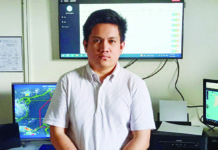BY GLENDA SOLOGASTOA
ILOILO City – Those wanting to adopt children must follow the legal processes or be charged criminally for birth simulation.
“Legal adoption is the right option. It is for the adopted child’s best interest,” said Katherine Joy Lamprea, social welfare officer II of the Department of Social Welfare and Development (DSWD) Region 6.
“Simulation of birth” is the tampering of the civil registry, making it appear in the birth records that a child was born to a person not his or her biological mother, causing such child to lose his or her true identity and status.
Under the Domestic Adoption Act of 1998 (Republic Act 8552), birth simulation is punishable by imprisonment, plus a fine not exceeding P50,000.
To avoid problems, those wanting to adopt children should follow the processes that the law has set, said Lamprea.
If a child is not legally adopted, the biological parents may, at some point in the future, take back their children, she said, and this may lead to problems.
Illegal adoption may also later on cause problems on the documents of the child, especially if he or she will go abroad. Establishing identity requires legal documents, Lamprea said.
Legal adoption also legalizes the benefits of an adopted child with the adoptive parents, she added.
DSWD helps those wanting to adopt children, Lamprea said.
“Our services are free. The only expense a couple may have is for their counsel who will facilitate their petition for adoption in court,” said Lamprea
Adoption is not only for “rich couple”, she clarified; what a child needs most are hands-on parents.
Under Section 7 of Republic Act 8552’s Article III, any Filipino citizen of legal age may adopt.
He or she must be:
- in possession of full civil capacity and legal rights
- of good moral character
- has not been convicted of any crime involving moral turpitude
- emotionally and psychologically capable of caring for children
- at least 16 years older than the adoptee, and who is in a position to support and care for his/her children in keeping with the means of the family.
The requirement of the 16-year difference between the age of the adopter and adoptee may be waived when the adopter is the biological parent of the adoptee, or is the spouse of the adoptee’s parent.
Foreigners possessing the same qualifications for Filipino nationals may also adopt, provided the following are met:
- his/her country has diplomatic relations with the Philippines
- he/she has been living in the Philippines for at least three continuous years prior to the filing of the application for adoption and maintains such residence until the adoption decree is entered
- he/she has been certified by his/her diplomatic or consular office or any appropriate government agency that he/she has the legal capacity to adopt in his/her country, and
- his/her government allows the adoptee to enter his/her country as his/her adopted son/daughter./PN



